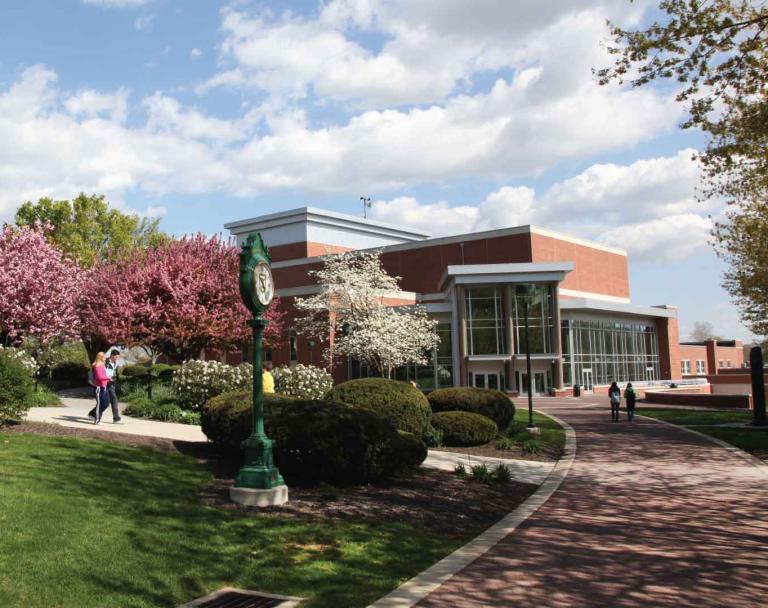Logan Morral

- Academics
- Dr. Donald E. and Lois J. Myers School of Nursing and Health Professions
- Spotlights
- Logan Morral
Nuclear Medicine Technology Major Turns Love of Science into Career of Purpose
Following his curiosity for life sciences, Logan Morral ’22 is about to begin clinical rotations in Nuclear Medicine Technology.
Breathe in. Breathe out. So many systems in your body had to coordinate just to accomplish that simple task. It’s not the kind of thing most people spend their time thinking about, but Logan Morral ’22 finds it fascinating.
Learning how the human body works lights him up. It’s that love of science and a desire to help others that led Morral to study Nuclear Medicine Technology at York College of Pennsylvania. This year, he’ll get an even closer look at the body’s most inner workings as he starts his clinical rotations at WellSpan York Hospital.
Finding the right fit
Morral knew two things for sure when he headed off to York College. He wanted to go into medicine to make a difference, and he didn’t want to be a nurse.
It was spring semester as a first-year student when, after hearing from seniors in his program, something clicked for Morral. He knew one more thing. What he was meant to study. Before the end of the year, he’d switched from Radiography to Nuclear Medicine Technology. “There was just something about it,” he says. “There was a weight off of my shoulders when I changed majors.”
Nuclear Medicine Technology is more patient-care focused. Plus, there’s a lot of science to it, working with isotopes, radiation, and physics. It was a perfect fit.
While finding his academic footing, Morral was also finding his social footing. He joined LAMBDA, an LGBTQIA organization on campus. They helped him meet people outside his bubble who had similar interests and made him feel welcome at York College. “It broke me out of my shell,” he says.
Preparing for the real thing
The idea that he will be interacting with real patients later this year in his clinical rotations is both exciting and nerve-racking. But, Morral is confident he’s prepared.
“Getting there and actually seeing it is going to be a lot different, but the education I’m receiving is going to be more than enough and has given me the confidence I need to actually do those things,” he says.
Just getting into a clinical program was incredibly competitive. Only seven Nuclear Medicine Technology students were accepted in the area this year. He credits his professors and the program at York College for getting him ready.
“It’s a very personable experience you get to have. There’s interaction with professors and advisors you don’t get at other schools,” he says. “It makes it easier to ask questions and get help.”
Making a difference
Some day in the not-too-distant future, Morral may be the one to find a patient with a life-threatening condition. But, as hard as that may be, he hopes finding that condition early, rather than not at all, might be the thing that saves them.
“At the end of the day I know that I’m making a difference out there, and that’s one of the main reasons I got into this career in the first place,” Morral says. “It’s more than just collecting a paycheck for me.”
Eventually he wants to go to medical school to become a physician's assistant or something that’s more hands-on and in the diagnostic realm of medicine. But for now, he says, he’s taking his first step off campus and into the hospital. “It’s very exciting getting to apply all the things I’ve been learning these past three years.”

